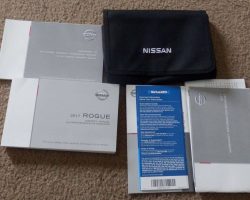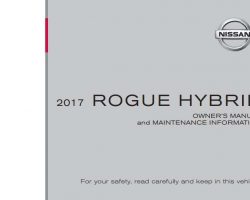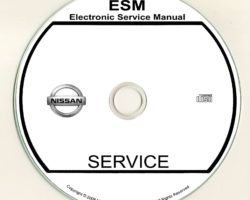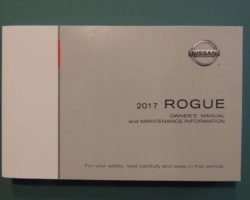2017
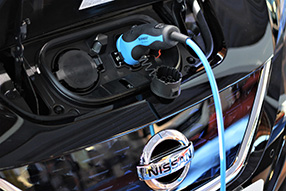
Factory Original NISSAN ROGUE 2017 Manuals
The NISSAN ROGUE 2017 is a great vehicle that has proven popular over the years. Below are the factory original NISSAN ROGUE 2017 owners and service repair manuals for the vehicle. In addition, this page has links to the electrical wiring and parts manuals for the NISSAN ROGUE 2017. These are the exact manuals your NISSAN dealer has and are the best money can buy. If NISSAN ROGUE 2017 is not what you are looking for, click on the navigation links or call our friendly staff for manuals for all cars, trucks, and vehicles in the United States. Click or call now.
Click NISSAN ROGUE 2017 Manuals Below
Showing all 5 resultsSorted by price: high to low
Related Questions
How long will a 2017 Nissan Rogue last?
The longevity of a 2017 Nissan Rogue will depend on several factors, including how well the vehicle is maintained, how often it is driven, and the driving conditions it is exposed to. According to industry experts, the average lifespan of a modern car is around 13 years or about 150,000 to 200,000 miles. However, many cars can last well beyond this range with proper maintenance and care.
Is 2017 Nissan Rogue fuel efficient?
The 2017 Nissan Rogue is generally considered fuel-efficient for its class of compact SUVs, with an EPA-estimated fuel economy rating of up to 26 mpg city and 33 mpg highway for the front-wheel-drive version with a 2.5-liter four-cylinder engine and continuously variable transmission. The all-wheel-drive version has a slightly lower fuel economy rating, with an EPA-estimated 25 mpg city and 32 mpg highway, but it's still competitive for an all-wheel-drive SUV. Additionally, the 2017 Rogue comes with an Eco mode that can help improve fuel efficiency.
How many liters is a Nissan Rogue 2017 100km?
Based on the manufacturer's specifications, the 2017 Nissan Rogue with a 2.5-liter four-cylinder engine and continuously variable transmission has an estimated fuel consumption of 7.0 liters per 100 kilometers on the highway and 8.9 L/100km in the city for the front-wheel-drive version. For the all-wheel-drive version, the estimated fuel consumption is slightly higher, with 7.4 L/100km on the highway and 9.2 L/100km in the city. However, the actual fuel consumption can vary depending on driving conditions and habits.

